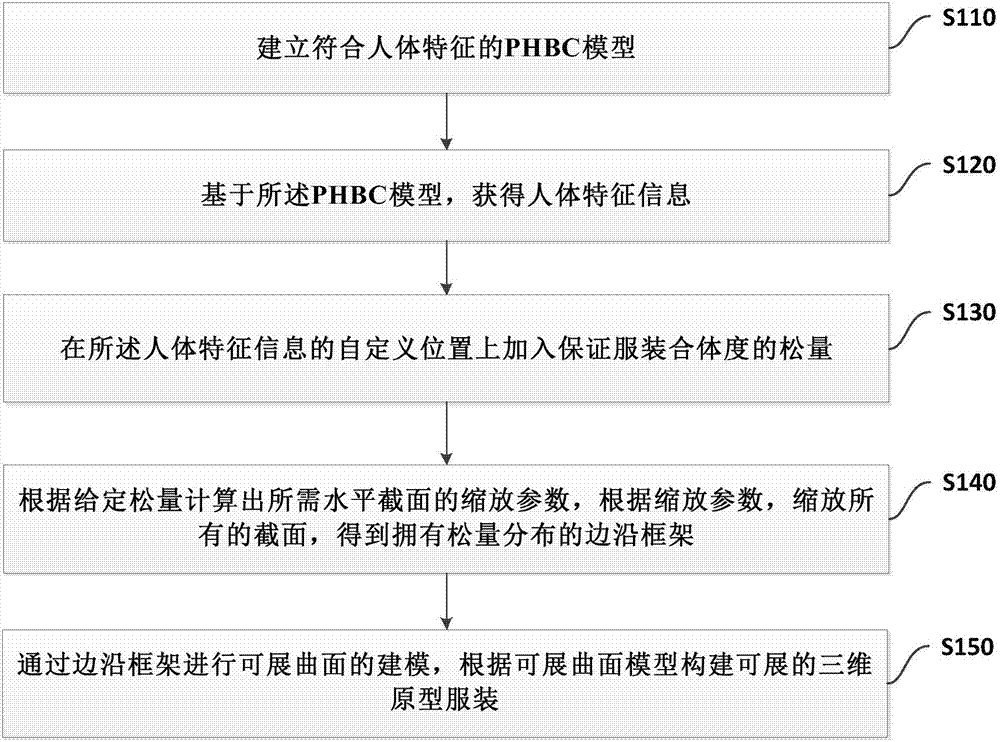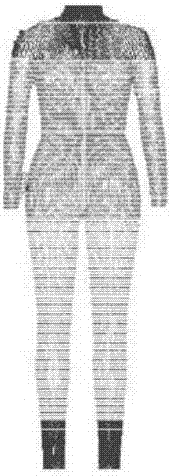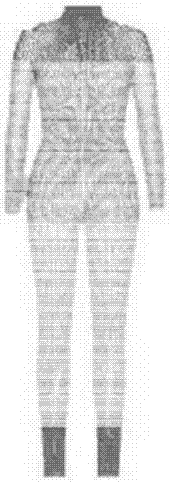Digital design method for three-dimensional prototype garments
A technology of clothing and prototyping, applied in the field of clothing design, can solve problems such as the inability to apply clothing models, applications, and affect the quality of two-dimensional models
- Summary
- Abstract
- Description
- Claims
- Application Information
AI Technical Summary
Problems solved by technology
Method used
Image
Examples
Embodiment 1
[0047] refer to figure 1 , figure 1 A flow chart of an embodiment of a digital design method for a three-dimensional prototype garment provided by the present invention is shown. Including: step S110 to step S150.
[0048] In step S110, a PHBC model conforming to the characteristics of the human body is established.
[0049] In step S120, based on the PHBC model, human body feature information is obtained;
[0050] In step S130, add the amount of looseness that guarantees the degree of clothing fit on the self-defined position of the human body feature information;
[0051] In step S140, the scaling parameter of the required horizontal section is calculated according to the given amount of looseness, and all the sections are scaled according to the scaling parameter to obtain an edge frame with a looseness distribution;
[0052] In step S150, the modeling of the developable curved surface is carried out through the edge frame, and the developable three-dimensional prototyp...
PUM
 Login to View More
Login to View More Abstract
Description
Claims
Application Information
 Login to View More
Login to View More - R&D
- Intellectual Property
- Life Sciences
- Materials
- Tech Scout
- Unparalleled Data Quality
- Higher Quality Content
- 60% Fewer Hallucinations
Browse by: Latest US Patents, China's latest patents, Technical Efficacy Thesaurus, Application Domain, Technology Topic, Popular Technical Reports.
© 2025 PatSnap. All rights reserved.Legal|Privacy policy|Modern Slavery Act Transparency Statement|Sitemap|About US| Contact US: help@patsnap.com



